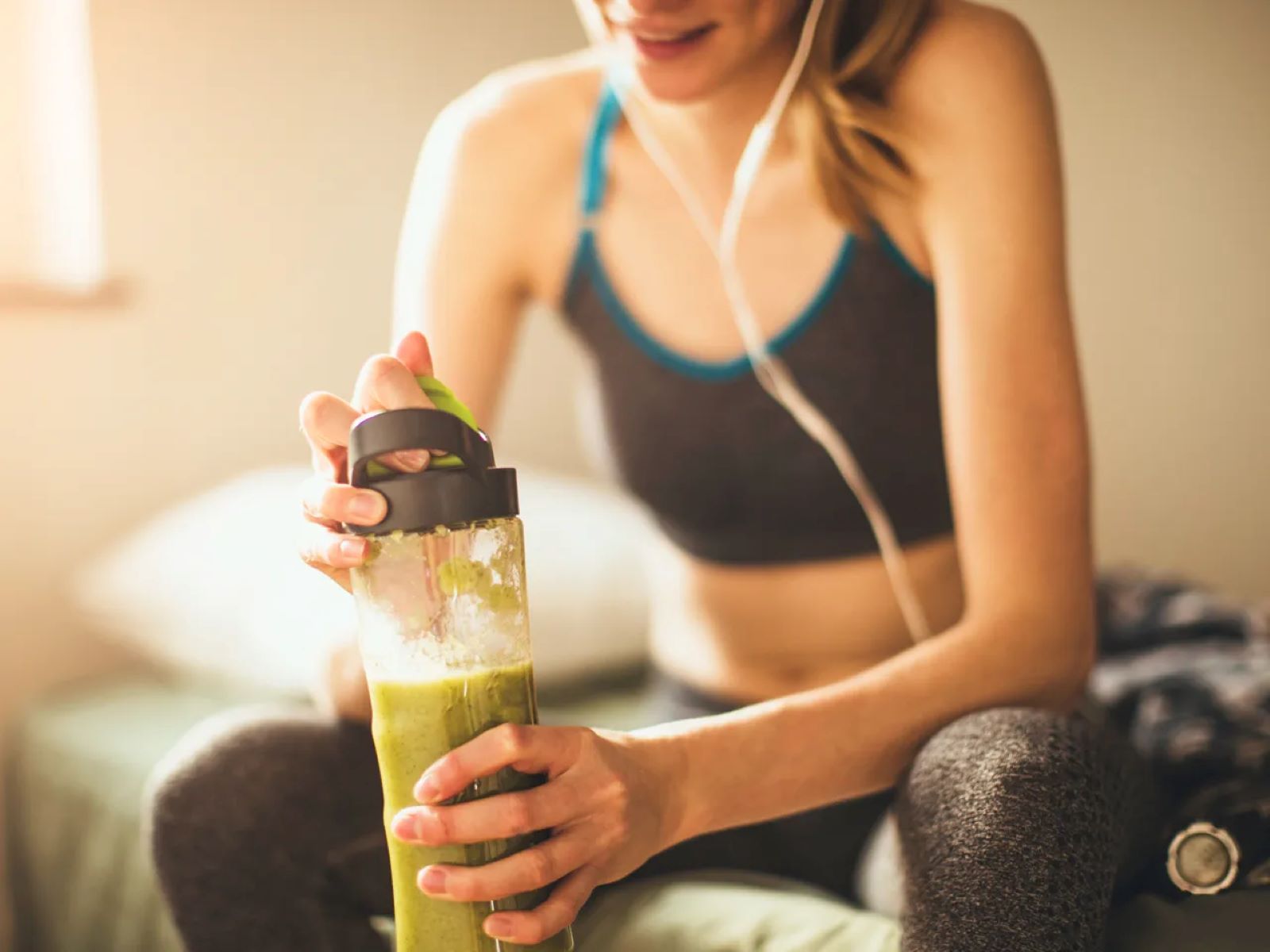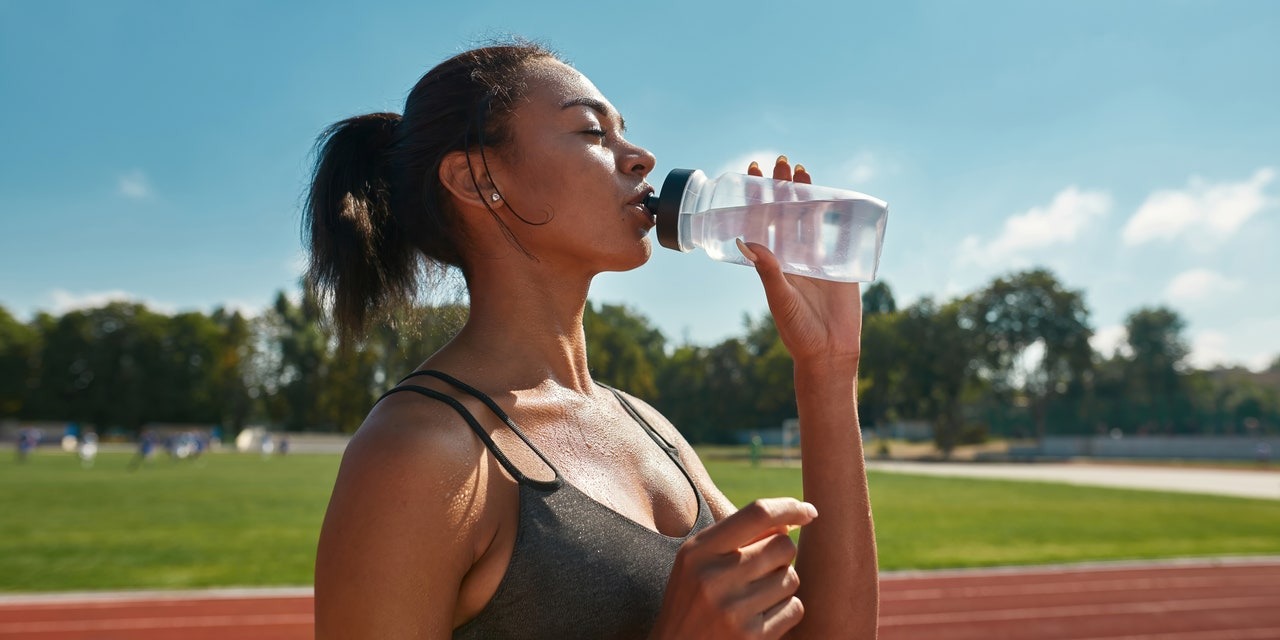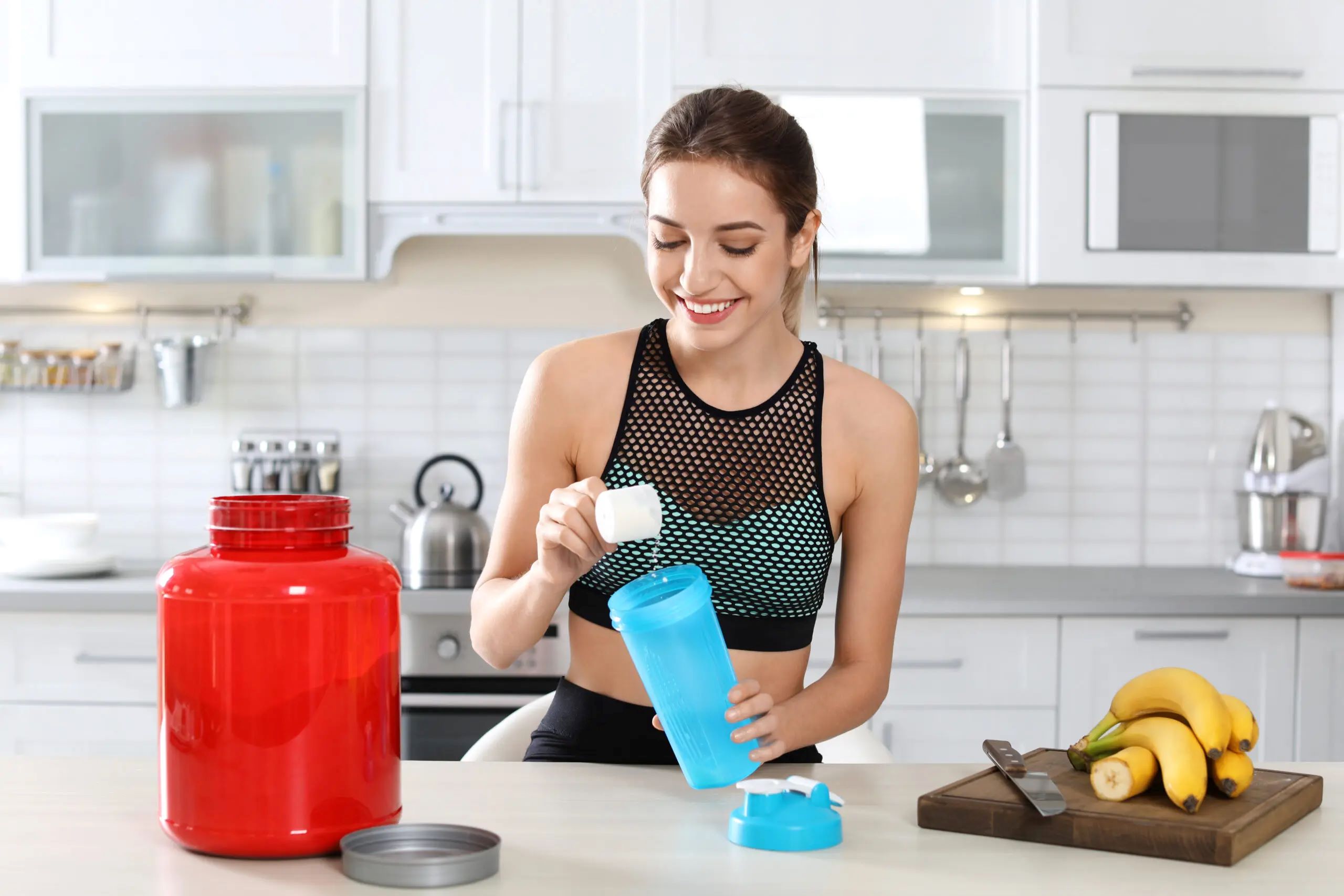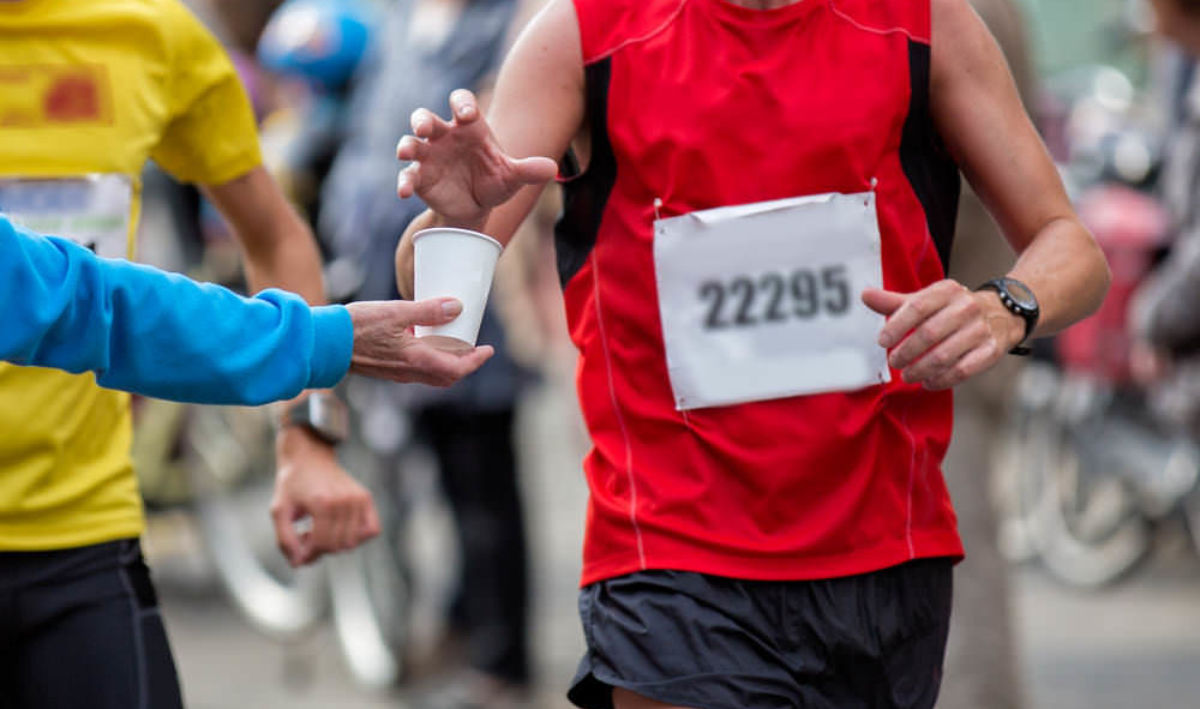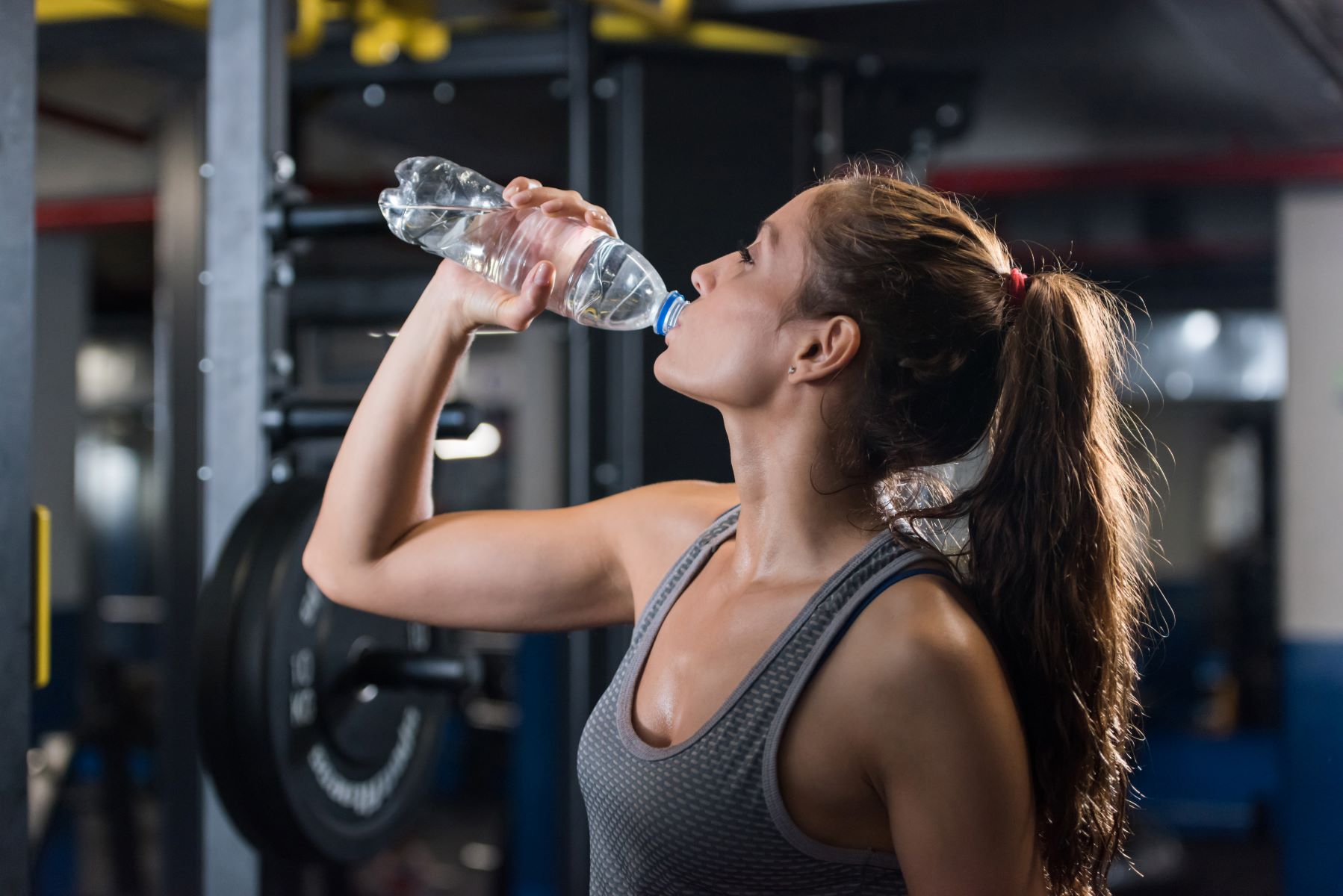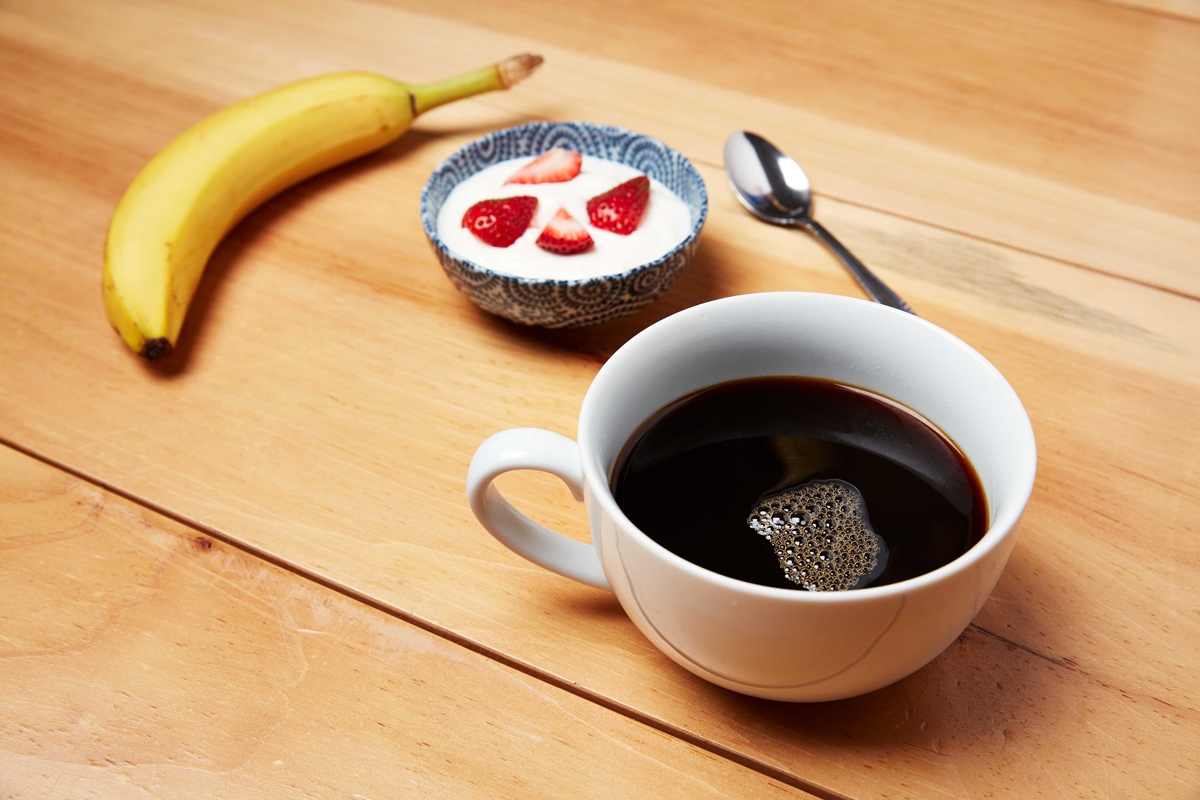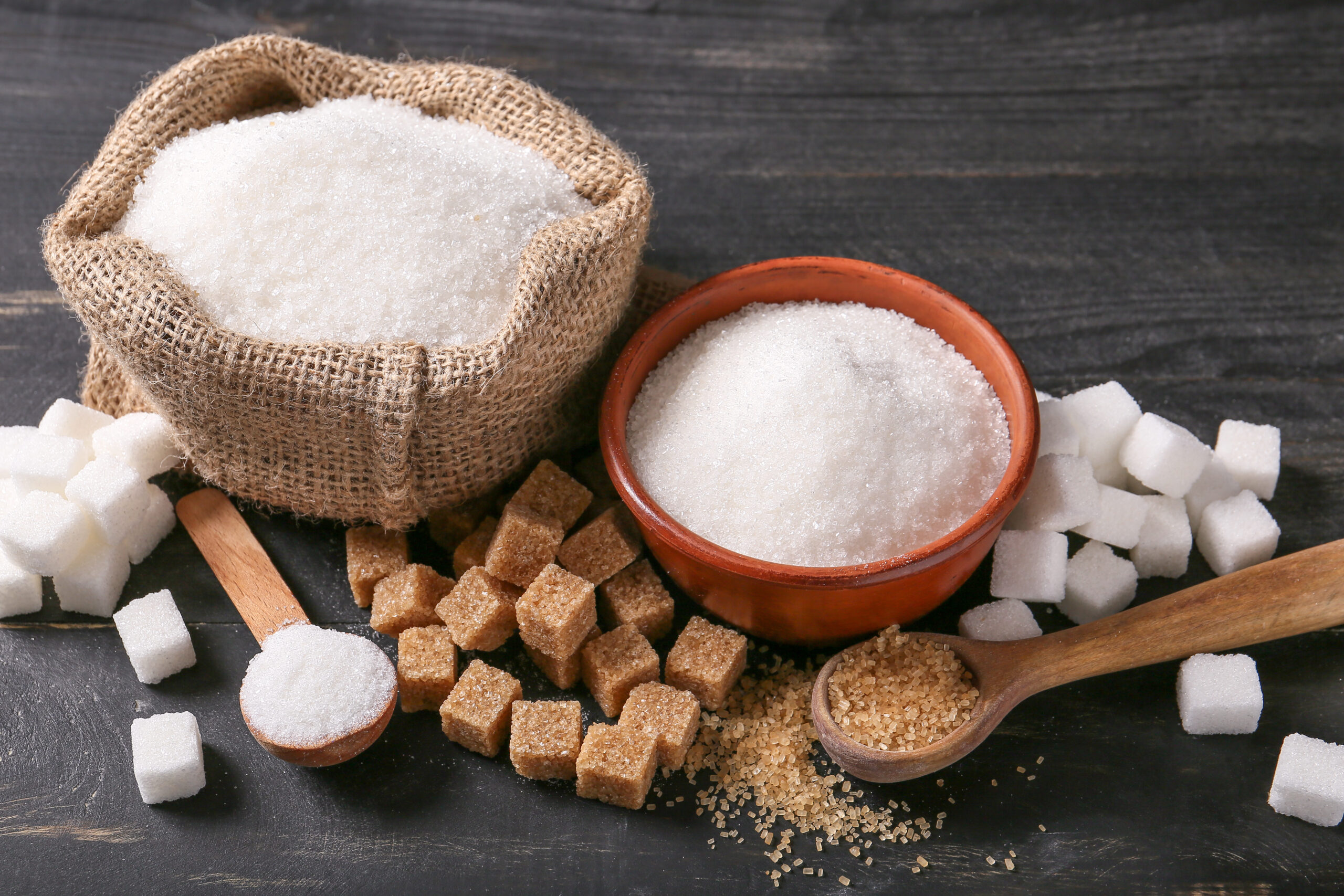Home>Misc>Featured>What Is The Best Type Of Beverage To Drink During Exercise
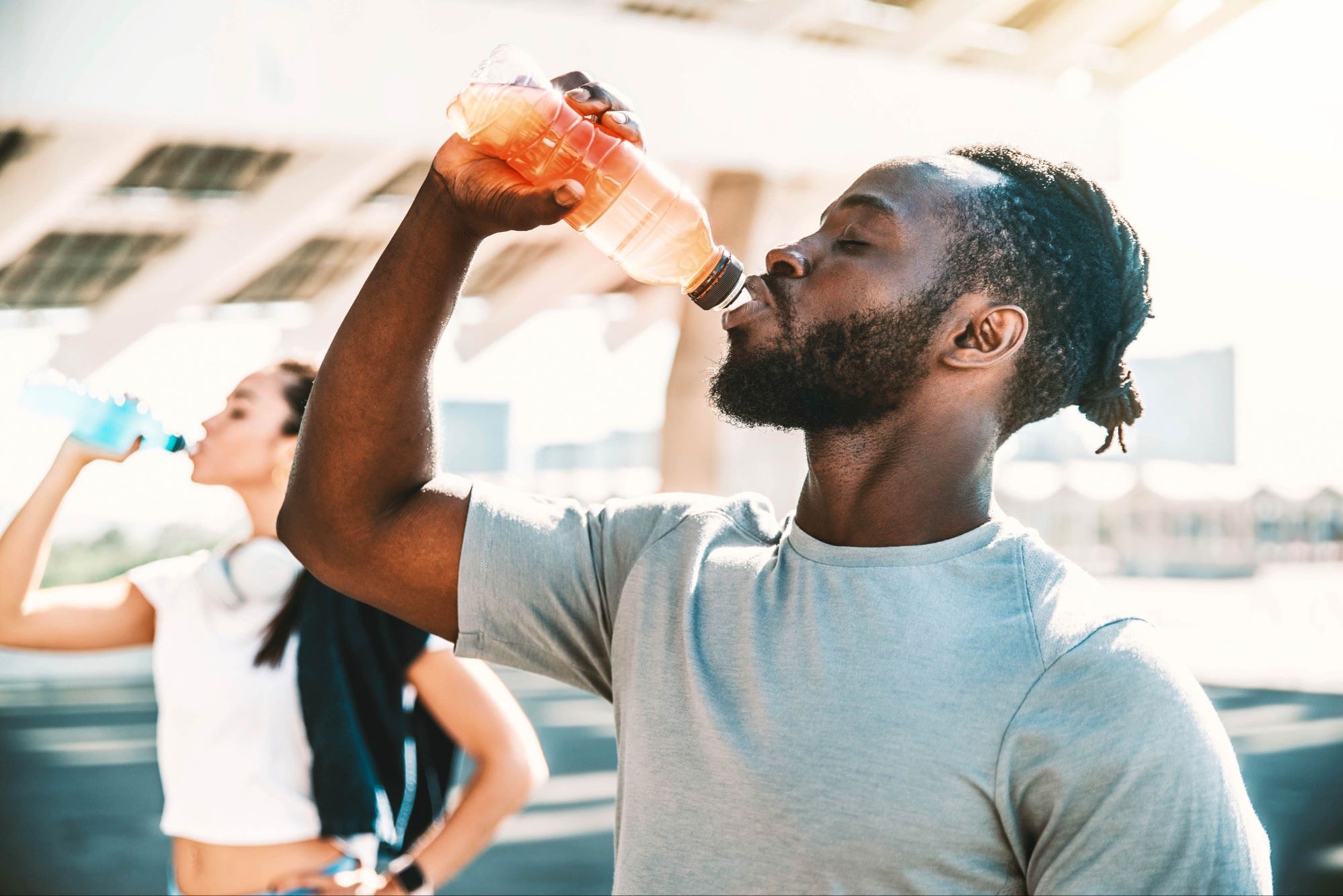

Featured
What Is The Best Type Of Beverage To Drink During Exercise
Published: September 29, 2023
Discover the featured beverage that will maximize your workout. Learn about the best types of beverages to drink during exercise for optimal performance and hydration.
Introduction
When it comes to exercise, hydration is key. Staying properly hydrated during physical activity is essential for optimal performance and overall well-being. But with so many beverage options available, it can be difficult to determine which one is the best choice for staying hydrated during a workout. In this article, we will explore various types of beverages and their effectiveness in maintaining hydration levels during exercise.
Hydration plays a crucial role in our bodies’ ability to function and perform at their best. During exercise, we lose water through sweat, which can lead to dehydration if not replenished. Dehydration can have negative effects on both our physical and mental performance, including muscle cramps, fatigue, and decreased cognitive function.
Choosing the right beverage is essential to avoid dehydration and optimize exercise performance. There are several factors to consider when selecting a drink for hydration. These include the duration and intensity of the exercise, individual sweat rate, and personal preferences.
In this article, we will explore the most popular types of beverages consumed during exercise and their benefits in terms of hydration. We will look at water, sports drinks, coconut water, fruit juices, milk, herbal teas, and even coffee. Each of these options has unique characteristics that make them suitable for different types of workouts.
It is important to note that hydration needs may vary between individuals, so it is crucial to listen to your body and adjust your fluid intake accordingly. Now, let’s dive into the world of beverages and discover which one is the best choice to quench your thirst and keep you hydrated during exercise.
Importance of Hydration during Exercise
Hydration is crucial for overall health and well-being, but it becomes even more important during exercise. When we engage in physical activity, our body temperature rises, and we start to sweat as a way to cool down. This sweating leads to fluid loss, which, if not replenished, can result in dehydration.
Proper hydration is essential for maintaining the balance of bodily fluids, regulating body temperature, and supporting various physiological functions. When we are dehydrated, our blood volume decreases, which can strain our cardiovascular system and impair the delivery of oxygen and nutrients to our muscles.
Dehydration can have a significant impact on exercise performance. Even mild dehydration, with a fluid loss of just 2% of body weight, can result in reduced endurance, decreased strength, and impaired cognitive function. It can also increase the risk of heat-related illnesses.
Furthermore, dehydration can affect our ability to recover after exercise. It slows down the removal of metabolic waste products from the muscles, delays the rehydration of muscle cells, and hampers the replenishment of glycogen stores. This can lead to prolonged muscle soreness, fatigue, and delayed recovery.
Each person’s hydration needs vary depending on factors such as the duration and intensity of the exercise, environmental conditions, and individual sweat rate. It is important to listen to your body and drink enough fluids to replace the water and electrolytes lost through sweat.
In addition to water, which is the ultimate hydration option, there are other beverages specifically designed to enhance hydration during exercise. Sports drinks, for example, contain electrolytes such as sodium and potassium, which help replenish the electrolytes lost through sweat. Coconut water is another popular choice due to its natural electrolyte content.
Proper hydration before, during, and after exercise is essential for maintaining optimal performance, preventing dehydration, and promoting recovery. It is recommended to start hydrating well before exercise, drink fluids at regular intervals during exercise, and continue hydrating even after the workout is over.
Factors to Consider when Choosing a Beverage
With a wide array of beverage options available, it’s important to consider certain factors when selecting the right drink for hydration during exercise. Here are some key factors to keep in mind:
1. Duration and intensity of exercise: The duration and intensity of your workout will determine how much fluid you need to consume. Longer and more intense workouts will require greater hydration to compensate for increased sweat loss.
2. Sweat rate: Each person has a different sweat rate, which influences their hydration needs. Some individuals naturally sweat more than others, so it’s important to replenish the fluids lost through sweat to avoid dehydration.
3. Personal preference: Choosing a beverage that you enjoy drinking will make it easier to maintain proper hydration. If you dislike the taste of a particular beverage, you may not drink enough of it to stay adequately hydrated. Find a drink that appeals to your taste buds, whether it’s water, sports drinks, fruit juices, or herbal teas.
4. Nutritional requirements: Consider your overall nutritional needs when selecting a beverage. Some individuals may require additional electrolytes, such as sodium and potassium, while others may benefit from the protein and carbohydrates found in certain drinks. Tailoring your choice to meet your specific nutritional needs can enhance your performance and recovery.
5. Environmental conditions: The temperature and humidity of your exercise environment can affect your fluid requirements. Hot and humid conditions can increase fluid loss through sweat, necessitating increased fluid intake.
6. Accessibility: Consider the practicality and accessibility of the beverage you choose. If you’re exercising outdoors or on the go, you may prefer a drink that is easily transportable and requires no additional preparation.
By taking these factors into account, you can make an informed decision about which beverage is best for your hydration needs during exercise. Remember that hydration is a personal and individualized process, so it’s important to monitor your body’s signals and adjust your fluid intake accordingly.
Water: The Ultimate Hydration Option
When it comes to hydration during exercise, water is the gold standard. It is easily accessible, inexpensive, and essential for maintaining optimal performance and well-being. Whether you’re engaging in low-intensity activities or intense workouts, water should be your go-to beverage for hydration.
Water plays a vital role in our bodies’ functions, including regulating body temperature, transporting nutrients, and lubricating joints. During exercise, it helps cool down our body temperature by facilitating sweating, which aids in dissipating heat.
One of the biggest advantages of water is its versatility. It can be consumed before, during, and after exercise without any side effects. Drinking water before a workout helps ensure adequate hydration beforehand. Sipping water during exercise helps replace the fluids lost through sweat and prevents dehydration. And after a workout, drinking water aids in the recovery process and rehydration of the body.
Another benefit of water is that it has no added sugars or calories, making it a suitable choice for those who are watching their calorie intake or trying to maintain a healthy weight. It is a simple, natural, and pure option for proper hydration.
While water is an excellent choice for most exercise routines, it may not provide the necessary electrolytes for intense or prolonged workouts. If you’re engaging in high-intensity activities or exercising for an extended period of time, consider incorporating electrolyte-rich beverages like sports drinks or coconut water to replenish the minerals lost through sweat.
It’s important to note that the amount of water you need to drink during exercise can vary depending on several factors, such as your body weight, sweat rate, and duration and intensity of the workout. However, a general guideline is to drink about 17-20 ounces of water two to three hours before exercise, sip on 7-10 ounces during exercise every 10-20 minutes, and then consume another 8 ounces within 30 minutes after the workout.
Hydrating with water is essential for maintaining optimal performance, preventing dehydration, and supporting the body’s natural functions. It’s a simple yet effective choice that should always be considered when it comes to hydration during exercise. So, remember to keep a water bottle handy and hydrate yourself regularly to perform at your best.
Sports Drinks: A Boost of Electrolytes
Sports drinks have gained popularity among athletes and fitness enthusiasts due to their ability to replenish fluids, provide energy, and restore electrolyte balance. These drinks are specifically designed to support hydration during intense workouts or prolonged physical activity.
One of the key advantages of sports drinks is their electrolyte content. Electrolytes, such as sodium, potassium, and magnesium, are minerals that play a crucial role in fluid balance, nerve function, and muscle contractions. When we sweat, we lose these electrolytes, and consuming a sports drink can help restore them more effectively than water alone.
By replenishing electrolytes, sports drinks can help prevent dehydration and muscle cramps, common issues during high-intensity exercise. Sodium, in particular, aids in retaining fluids, improving hydration, and stimulating thirst, which encourages further fluid consumption.
In addition to electrolytes, sports drinks often contain carbohydrates in the form of sugars or carbohydrates. These provide a source of quick energy, which can be beneficial for endurance athletes or those participating in activities lasting longer than 60 minutes. The carbohydrates in sports drinks help replenish glycogen stores and provide sustained energy during prolonged exercise.
It’s important to note that sports drinks are best suited for intense and prolonged workouts. If you’re engaging in shorter or low-intensity exercises, water is generally sufficient for rehydration. Sports drinks typically contain calories and sugars, so if you’re watching your calorie intake or have specific dietary restrictions, it’s important to consider this when choosing a sports drink.
When selecting a sports drink, it’s essential to read the label and understand its ingredients. Look for drinks with an appropriate carbohydrate concentration (around 6-8%), as high concentrations can delay gastric emptying and lead to gastrointestinal issues. Avoid drinks with excessive amounts of added sugars or artificial additives.
Keep in mind that sports drinks are not needed for everyday workouts or casual physical activities. It’s best to reserve them for more intense or prolonged exercise when you need the extra hydration and energy boost that they provide.
Overall, sports drinks can be a valuable tool for hydration during demanding workouts. They replenish electrolytes, provide energy, and support optimal performance. However, it’s important to use them judiciously and only when necessary. For most people, water and natural foods can sufficiently meet their hydration and energy needs during exercise.
Coconut Water: Nature’s Electrolyte-rich Drink
Coconut water has gained popularity as a natural and refreshing alternative to sports drinks. This clear liquid found inside young coconuts is not only delicious but also packed with essential electrolytes and nutrients.
One of the main advantages of coconut water is its impressive electrolyte content. It contains important minerals like potassium, sodium, magnesium, and calcium, which are crucial for maintaining fluid balance, muscle function, and nerve conduction. These electrolytes help replenish and restore the body’s hydration levels, making coconut water an excellent choice for post-workout recovery.
Coconut water is particularly beneficial for those engaging in high-intensity workouts or activities in hot and humid environments. The potassium content in coconut water is higher than that of most sports drinks, making it an effective option for replenishing electrolytes lost through sweat.
In addition to electrolytes, coconut water is rich in vitamins and minerals. It contains antioxidants, such as Vitamin C, which can help combat oxidative stress and support overall immune health. It also contains natural sugars and provides a source of carbohydrates, offering a gentle energy boost without artificial additives or excessive calories.
One of the significant advantages of coconut water is its natural composition. It is free from artificial colorings, flavorings, and preservatives, making it a healthier option compared to many commercial sports drinks on the market. It is a natural and pure source of hydration that can be enjoyed guilt-free.
However, it’s important to note that coconut water may not be suitable for everyone. While it is low in calories and fat, it does contain natural sugars, so individuals on a strict low-sugar or low-carbohydrate diet should consume it in moderation. Additionally, those with kidney or heart conditions should consult their healthcare provider before incorporating coconut water into their routine, as it is still a source of potassium.
When selecting coconut water, opt for brands that offer 100% pure coconut water with no added sugars or artificial ingredients. Be aware that some brands may add flavors or sweeteners, which can affect the overall nutritional value of the beverage.
To enjoy the full benefits of coconut water, it is best to drink it when it is fresh and chilled. You can find coconut water in cartons or bottles for convenience, or you can experience the authentic taste of a freshly opened coconut.
Overall, coconut water is a nature-made electrolyte-rich drink that provides hydration, a source of natural energy, and essential nutrients. It is a refreshing and healthy choice, especially for individuals looking for a natural alternative to synthetic sports drinks.
Fruit Juices: Natural Energy and Hydration
Fruit juices have long been celebrated for their refreshing taste and nutritional benefits. They can also be a great option for natural energy and hydration during exercise, especially when made with fresh, whole fruits.
Fruit juices are rich in natural sugars, which provide a quick source of energy. These sugars are easily accessible to the body and can be utilized during physical activity, helping to fuel your workout and keep you energized. The natural sugars in fruit juices are accompanied by a variety of vitamins, minerals, and antioxidants, making them a nutritious choice for hydration.
In terms of hydration, fruit juices can be quite effective. Fruits naturally contain water, which contributes to the overall fluid intake when juiced. This makes them a hydrating option, especially when consumed during or after exercise to replenish fluids lost through sweat.
Furthermore, many fruits are high in electrolytes, such as potassium and magnesium. These electrolytes are vital for maintaining proper fluid balance in the body and supporting nerve and muscle function. By including fruit juices in your hydration strategy, you can replenish electrolytes naturally and enhance your body’s ability to stay hydrated.
It’s important to note that while fruit juices can be a healthy option for hydration, it’s crucial to choose juices that are made from whole fruits and have no added sugars or artificial additives. Commercial fruit juices often have added sugars, which can increase calorie intake and spike blood sugar levels. Opting for freshly squeezed or homemade fruit juices allows you to control the ingredients and ensure you’re getting the maximum nutritional benefits.
However, it’s worth mentioning that fruit juices should be consumed in moderation, especially for individuals watching their sugar intake or those with certain health conditions, such as diabetes. Whole fruits are generally a better option as they provide fiber and are absorbed more slowly by the body, avoiding rapid blood sugar spikes.
Additionally, some fruits are more hydrating than others. Citrus fruits, such as oranges and grapefruits, are known for their high water content, while watermelon and cucumbers are also incredibly hydrating. Including these fruits in your juice blends can boost their hydrating properties.
As with any beverage, it’s important to consider the overall balance of your diet and fluid intake. While fruit juices offer hydration and natural energy, they should not replace the importance of water or other fluids in your daily routine. Variety is key, so be sure to include a mix of fruits, water, and other hydrating options.
Incorporating freshly squeezed fruit juices into your exercise routine can provide a wide range of nutritional benefits, natural energy, and hydration. Just remember to choose juices made from whole fruits, consume them in moderation, and maintain a balanced fluid intake throughout the day.
Milk: A Nutrient-packed Recovery Drink
Milk has long been recognized as a nutritious beverage that provides essential nutrients for overall health. It is also an excellent option for post-workout recovery, thanks to its unique combination of carbohydrates, protein, and electrolytes.
One of the main benefits of milk as a recovery drink is its protein content. Protein plays a crucial role in muscle repair and growth, making it essential for recovery after exercise. Milk contains two types of high-quality proteins: whey and casein. Whey protein is quickly absorbed by the body, providing a rapid infusion of amino acids to support muscle repair, while casein protein is slowly digested, providing a sustained release of amino acids over time.
Carbohydrates in milk, primarily in the form of lactose, also contribute to post-workout recovery. These carbohydrates aid in replenishing glycogen stores, which can become depleted during intense exercise. The combination of carbohydrates and protein in milk creates an optimal ratio for recovery, promoting muscle protein synthesis and glycogen restoration.
In addition to protein and carbohydrates, milk is a good source of electrolytes, such as calcium, potassium, and magnesium. These electrolytes are important for maintaining fluid balance, nerve function, and muscle contractions. Replenishing electrolytes after exercise is crucial to restore hydration and support overall recovery.
One notable advantage of milk over other recovery drinks is its natural composition. It offers a wide range of essential nutrients like vitamins (such as vitamin D and B vitamins) and minerals (such as phosphorus and zinc). These nutrients support overall health, immune function, and bone strength.
It’s important to consider the fat content of milk when choosing it as a recovery drink. Whole milk contains higher levels of fat, which can provide additional energy but may not be suitable for individuals with specific dietary needs or goals. Skim or low-fat milk can be alternative options for those looking to reduce fat intake while still benefiting from the other nutritional advantages of milk.
Timing is essential when using milk as a recovery drink. Consuming milk within 30 minutes to an hour after exercise allows for optimal absorption and utilization of its nutrients. Pairing milk with carbohydrates, such as a piece of fruit or whole-grain toast, can further enhance the recovery benefits.
However, it’s essential to note that milk may not be suitable for individuals with lactose intolerance or milk allergies. In these cases, there are lactose-free or plant-based alternatives available that can provide similar benefits, such as soy milk or almond milk.
Incorporating milk into your post-workout routine can offer a nutrient-packed recovery drink that supports muscle repair, glycogen replenishment, and overall recovery. Consider your individual dietary needs and goals when selecting the type of milk that best fits your lifestyle, and remember to consume it in conjunction with a balanced diet and fluid intake.
Herbal Teas: Hydrating and Calming
When it comes to hydration during exercise, water is usually the top choice. However, herbal teas can offer a delightful and hydrating alternative, especially for those who prefer a warm and comforting beverage. Herbal teas are not only hydrating but also offer various health benefits and a calming effect.
One of the advantages of herbal teas is that they are typically caffeine-free, making them a suitable choice for individuals who are sensitive to caffeine or prefer to avoid it. Caffeine, found in beverages like coffee and some types of tea, can act as a diuretic, potentially increasing fluid loss. Herbal teas, on the other hand, provide hydration without the diuretic effect of caffeine.
Many herbal teas also provide additional health benefits. For example, chamomile tea is known for its calming properties, making it a great choice for relaxation and stress reduction after exercise. Peppermint tea is often enjoyed for its soothing effects on digestion, while ginger tea can help alleviate muscle soreness and inflammation.
The hydrating properties of herbal teas can vary depending on the ingredients used. Some herbal teas, such as hibiscus or rosehip tea, naturally contain high levels of vitamin C, which can support immune health and provide antioxidant benefits. Other herbal teas, like nettle or dandelion tea, may have diuretic properties, so it’s important to consult with a healthcare professional if you have specific health concerns.
Preparing herbal tea is simple and can be done using dried herbs or tea bags. In most cases, you can steep the tea in hot water for several minutes to release the flavors and beneficial compounds. Experimenting with different herbal tea blends allows you to discover flavors that resonate with you and cater to your personal preferences.
However, it’s important to note that herbal teas should not replace water as the primary source of hydration, especially during intense workouts. Water is still the most efficient and straightforward way to stay hydrated during exercise. Herbal teas can be a comforting addition to your hydration routine, providing variety and additional health benefits.
If you choose to consume herbal teas for hydration, it’s best to consume them at a moderate temperature. Avoid drinking teas that are scalding hot, as this can be harsh on the digestive system and potentially interfere with fluid absorption.
Overall, herbal teas are a hydrating and comforting alternative to replenish fluids after exercise. The calming effects and additional health benefits make them an appealing choice for individuals looking to unwind and rehydrate. Just remember to incorporate them as part of a well-rounded hydration plan and listen to your body’s needs.
Coffee: The Controversial Workout Companion
For many people, starting the day with a cup of coffee is a beloved routine. Coffee is well-known for its ability to provide an energy boost and improve focus, thanks to its high caffeine content. With its stimulating effects, some individuals wonder if coffee can also enhance exercise performance and be a suitable workout companion.
One of the primary benefits of coffee for exercise is its caffeine content. Caffeine acts as a central nervous system stimulant, increasing alertness and reducing feelings of fatigue. It can improve endurance, enhance reaction time, and even help mobilize fat as an energy source during exercise.
Research suggests that consuming coffee before a workout can lead to improved performance and increased stamina. It can help individuals exercise at a higher intensity or for a longer duration. However, the effects of caffeine can vary depending on the individual’s tolerance, sensitivity, and the amount consumed.
It’s important to note that excessive caffeine consumption can have adverse effects, such as increased heart rate, anxiety, or gastrointestinal discomfort. Additionally, caffeine can act as a diuretic, increasing urine production and potentially leading to dehydration if not balanced with adequate fluid intake.
The timing of coffee consumption is crucial for its effects on exercise. Consuming coffee 30-60 minutes before a workout allows the caffeine to be absorbed into the bloodstream and reach peak levels, maximizing its performance-enhancing benefits. However, individuals who are sensitive to caffeine or have difficulty sleeping should consider consuming coffee earlier in the day to prevent any interference with sleep patterns.
While coffee can offer benefits for exercise performance, it may not be suitable for everyone. Individuals who are caffeine-sensitive, have certain medical conditions, or are seeking to limit their caffeine intake should exercise caution or consult a healthcare professional before incorporating coffee into their workout routine.
It’s also important to consider the overall composition of your coffee. Adding excessive amounts of sugar, cream, or flavored syrups to your coffee can increase the calorie and sugar content, potentially negating the benefits of exercise. Opting for black coffee or using alternative milk options and natural sweeteners can help maintain the health benefits without added sugars or excessive calories.
Ultimately, the decision to consume coffee before exercise depends on personal preference, tolerance, and specific exercise goals. It’s essential to listen to your body and make adjustments based on how caffeine affects you individually. Moderation is key, and if used appropriately, coffee can potentially be a helpful companion for your workout routine.
Conclusion
Choosing the right beverage for hydration during exercise is essential for optimal performance, recovery, and overall well-being. Water remains the ultimate hydration option, providing simple and accessible rehydration without any added sugars or calories. It should be the go-to choice for most exercise routines.
Sports drinks can be beneficial for intense or prolonged workouts, as they replenish electrolytes and provide a source of carbohydrates for energy. However, they should be consumed judiciously and only when necessary, as they may contain added sugars and calories.
Coconut water offers a natural electrolyte-rich alternative to sports drinks, providing hydration and a range of beneficial nutrients. It is particularly useful for those engaging in high-intensity exercises in hot and humid conditions.
Fruit juices can provide natural energy and hydration, along with additional vitamins, minerals, and antioxidants. However, they should be consumed in moderation, considering their sugar content and the importance of whole fruits in one’s diet.
Milk offers a nutrient-packed recovery option, with its combination of protein, carbohydrates, electrolytes, and other essential nutrients. It promotes muscle repair, glycogen replenishment, and overall recovery. Individuals with lactose intolerance or dietary restrictions should explore alternatives such as plant-based milk.
Herbal teas can provide hydration, health benefits, and a calming effect. While they can be a comforting addition to a hydration routine, they should not replace water as the primary source of hydration during exercise.
Coffee holds potential benefits for exercise performance due to its caffeine content. It can enhance alertness, endurance, and fat utilization as an energy source. However, individuals should consider their caffeine sensitivity, timing, and moderation to prevent adverse effects and interference with sleep patterns.
In conclusion, the best type of beverage to drink during exercise depends on various factors, including the duration and intensity of the workout, individual preferences, and specific nutritional requirements. Water should be the foundation of hydration, while other options can be incorporated selectively based on personal needs and goals. It’s important to listen to your body, stay hydrated, and make informed choices to support your exercise journey and overall well-being.

